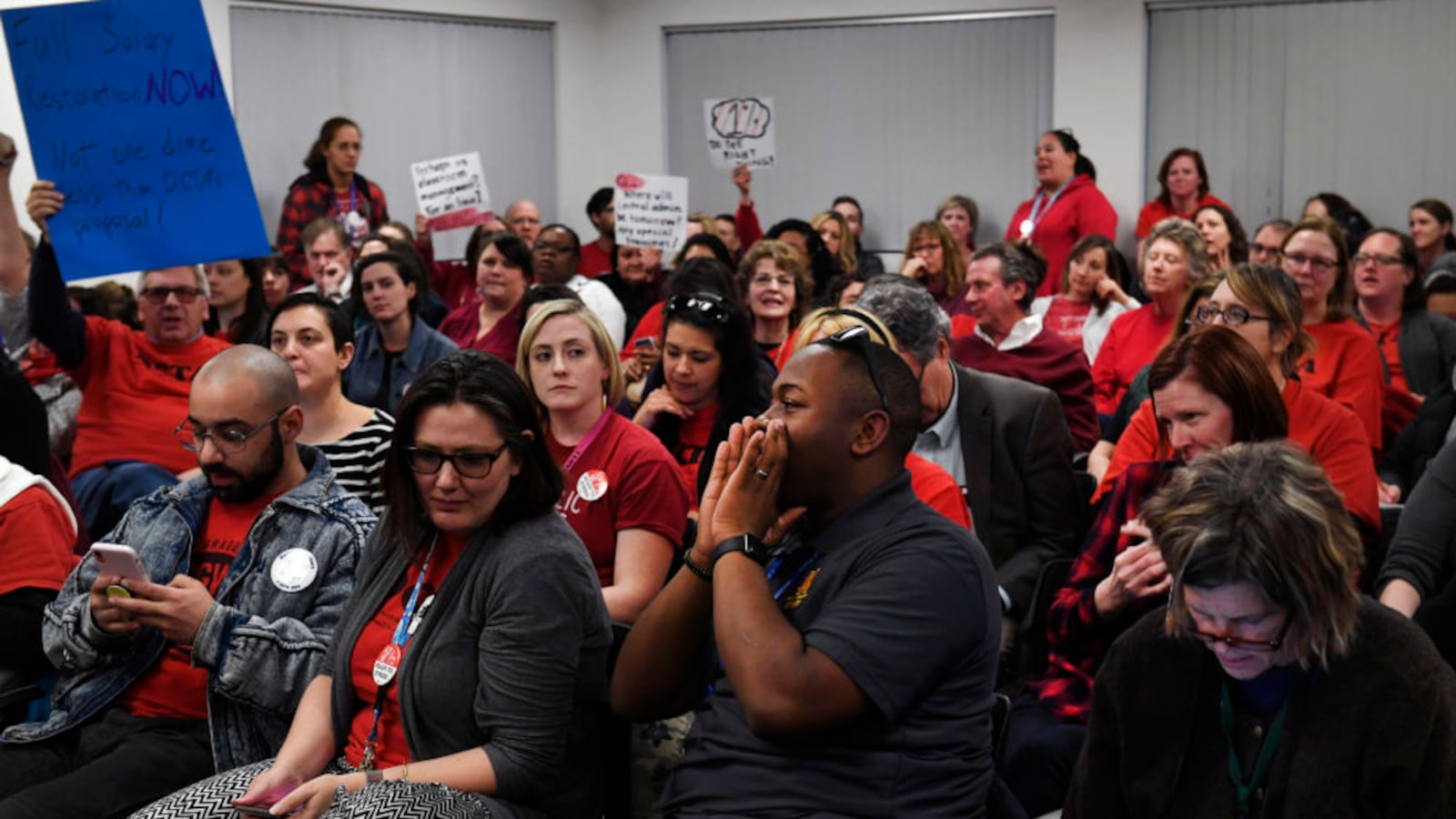To undo a perceived disadvantage for public entities, a state legislative committee on Tuesday advanced a bill allowing Colorado school boards to meet privately to prepare for employee bargaining sessions.
Backers say House Bill 1201 closes a loophole created by a 2014 voter-approved measure that requires school districts and unions to conduct bargaining sessions in public.
The Independence Institute, a libertarian think tank, advocated for that measure, called Proposition 104, which opened employee contract bargaining sessions to the public. Because administrators, rather than elected board members, typically negotiate with teacher unions, bargaining usually took place behind closed doors before the proposition passed.
The institute has not opposed the bill that passed the committee Tuesday.
In 2014, school board members warned that the new law would make it tough for boards to agree on terms before bargaining begins.
Since then, most school boards have operated under the presumption that the law bans private meetings to discuss bargaining strategy. Unions, on the other hand, as private entities aren’t covered by open meetings laws and don’t have to meet in public to discuss negotiations.
Bill sponsor state Rep. Jim Wilson, a Salida Republican, likened the current situation to an unfair poker game.
“The other side already knows where you are, where you’re coming from, what you’re dealing with,” he said. “Knowing what the other person at the table has in their hand makes the game a little lopsided.”
Wilson is a former school superintendent. The other House sponsor, state Rep. Cathy Kipp, a Fort Collins Democrat, is a former school board member.
Ron Mitchell, Jeffco Public Schools board president, agreed that school boards are at a disadvantage when talking with administrators in public meetings about upcoming negotiations.
“We try to advise our team,” he said. “We are very general with our instructions to our bargaining team. At the same time, the other team is sitting in the room either recording it or listening to it.”
For example, if a school board publicly indicates agreement to certain concessions in advance of negotiations, Mitchell said, a union might add other items to its list of objectives.
In the recent Denver teacher strike, school board members publicly expressed support for paying incentives to teachers at high-poverty schools, a key district priority, but they did not otherwise discuss strategy or areas of potential compromise. For more strategic aspects of the negotiations, the district team met with board members two at a time to avoid violating restrictions on executive sessions.
“So the board didn’t get the benefit of having a full board discussion to inform directors’ feedback on negotiation strategy,” district spokesperson Anna Alejo said in an email.
Marathon bargaining sessions, often packed with red-shirted teachers who loudly booed or cheered speakers, did take place in public — though most of the final hours of negotiations occurred with the bargaining teams in separate rooms communicating via a mediator out of earshot of the audience.
Jon Caldara, executive director of the Independence Institute, said even though the institute doesn’t oppose the new bill, he doesn’t think it is needed.
“I think it’s unnecessary because 104 doesn’t prevent school boards from having strategy sessions just like they do any other executive sessions,” Caldara said. “If school boards feel they need more clarification on that, by all means. It’s a silly thing to say they can’t do it already.”
Legislative analysts who reviewed Proposition 104 said the interpretation was ambiguous.
The Colorado Education Association, the state’s largest teachers union, agrees with the intent behind the bill, said CEA President Amie Baca-Oehlert.
However, she said, the union would like to see more clarity about when and how often such closed meetings are held.
The committee approved the bill without amendments or discussion. It next goes to the House floor.
Erica Meltzer contributed to this report.

